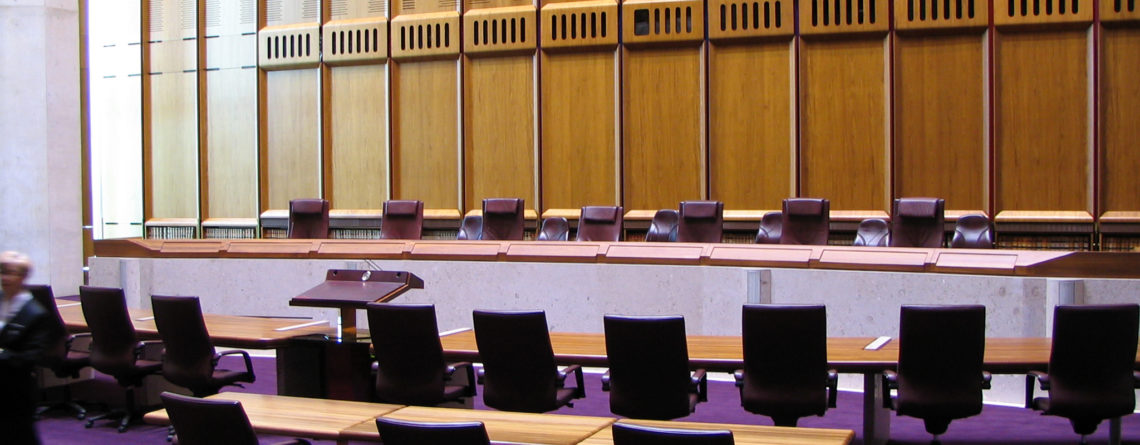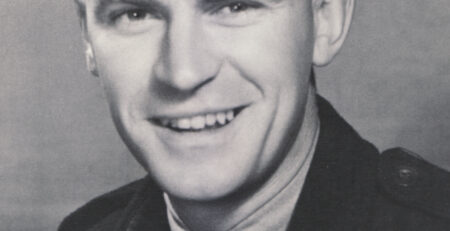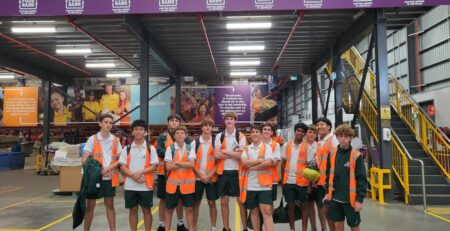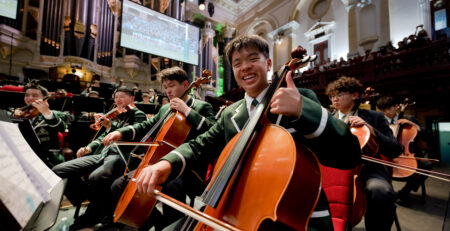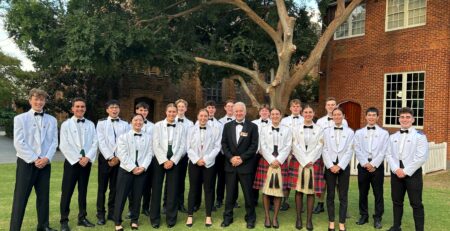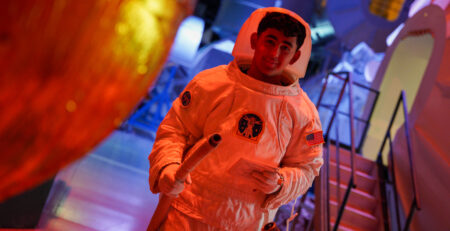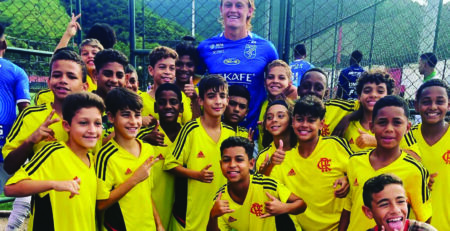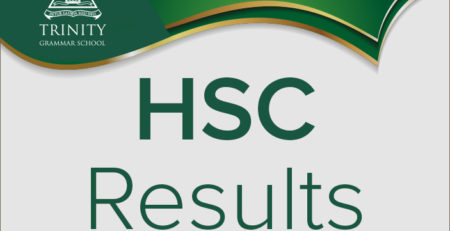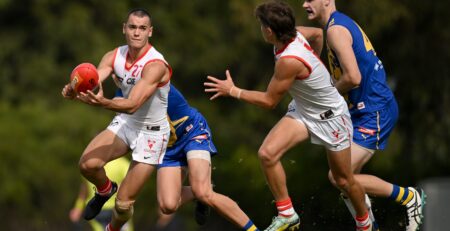Mock Trial Quarter Finals vs William Clarke College
On the afternoon of Tuesday, 9 November, Trinity’s Mock Trial team, comprised of Daksh C. (12He), Keith K. (12WH), Will M. (12WH), Joshua P. (12La), Dylan W. (12La), Christopher K. (10La) and Liam W. (10Ar), encountered a determined side from William Clarke College in the Quarter Finals of the 2021 NSW Mock Trial Competition. As the competition progresses, the legal cases become increasingly difficult, and this was only amplified by the ‘Starting 5’ of our usual team being in the midst of our final IB examinations. Trinity was tasked with representing the ‘Plaintiff’ in a civil law trial, who had their red 2019 BMW M3 Coupe stolen while it was in the possession of the defendant, Parker Prestige Car Services. The team had to prove on ‘the balance of probabilities’ that the defendant was liable for breaching its bailment agreement with the plaintiff. The two key elements of ‘bailment’ that were contested included if the car was returned to the plaintiff, and whether the defendant had undertaken sufficient measures to protect the plaintiff’s car.
Our case began with our opening barrister, Will, who delivered a clear opening address that carefully dealt with and simply explained complex legal concepts. This was a low scoring trial and Will’s opening address scored 7 points higher than the defence barrister, solidifying our position from the start of the trial. Will then called the plaintiff, Casey Higginson, who was the first witness of the trial. This witness was played by Daksh, whose dramatic flair was once again apparent in his ability to dig deep into his memory to recite his script and in his emphatic answers throughout the examination-in-chief. During Daksh’s examination-in-chief, Will was able to successfully respond to eight of the defence barrister’s objections, ensuring that nearly all of Casey Higginson’s testimony was kept in the court record. In Daksh’s cross-examination, the defence barrister attempted to extract some concessions from the plaintiff. However, Daksh remained poised and gave perceptive and logical answers. Daksh was aided by Will’s objections to the tactics employed by the defence barrister in trying to gain concessions from this key witness.
Closing barrister, Josh, called the plaintiff’s second witness, Taylor Washington, played by Dylan, who saw the theft take place. Dylan’s composure in the face of pressure from the defence barrister during the examination-in-chief meant that it would have been impossible to discern that he had an IB Chemistry exam the next day. In the cross-examination of Taylor Washington, Dylan provided reasoned answers and the court even heard Dylan utilise his IB Physics knowledge as he explained how the lack of parallax error enabled him to identify the number plate of the stolen car. Dylan’s cross-examination was very short as all six of Josh’s objections were upheld, significantly restricting the questions of the defence barrister and preventing any concessions.
It is here that the efforts of Daksh and Dylan must be applauded. Completing a Higher Level Mathematics exam is a ridiculously difficult task on its own, yet being able to follow this up five hours later with superb performances as unperturbable witnesses is truly impressive.
After our case had closed, William Clarke College’s first witness was sworn in. This witness was the Customer Service Manager of Parker Services who claimed that the plaintiff had not informed them of a spare key in the car. During Will’s cross-examination of this witness, their credibility was substantially undermined and Will was able to draw out the concessions that the security measures at Parker Services had not been able to prevent the crime and that there can be over $5 million worth of cars in Parker Services’ large carpark at any time. The defence’s second witness was the mechanic who had worked on the plaintiff’s car. This witness was cross-examined by Josh who successfully responded to all six of the defence barrister’s objections, granting scope in being able to extract important concessions including a history of similar incidents and an inaccurate description of the assailants. The cross examination of both of these witnesses gave Trinity momentum as the team entered the closing arguments.
As the plaintiff, Josh delivered his closing address first. Assisted by the valuable insight of the team, Josh’s 15-minute closing argument examined the case by using the provided case law and legal precedents to prove the inadequacy of the defendant’s security measures. Josh pre-empted the material in the defence’s closing submission, helping put the nail in the coffin. Here, it is fitting that commendation is given to Chris, who was promoted to the bar table and was the team’s solicitor for this trial. The team also benefitted from Keith’s ardent support from the sidelines, as he simultaneously prepared for his IB Chemistry exam. Magistrate clerk, Liam, performed his duties to a high standard once again, assisting the magistrate and ensuring a smooth and quick trial.
After a tense deliberation, the magistrate ruled in favour of the plaintiff and found the defendant liable, awarding $100,000 in damages. The Trinity team also won the case, with a dominant 32 point win: 199 – 167.
This was undoubtedly the team’s most difficult trial yet, in both our opposition, and the challenge of preparing for both the trial and our final IB exams. The team has been fervently supported by the indispensable work of Mr Shipp, who has always been available to assist the team. We were also fortunate to have Mr Pratt tune into the trial whilst on his long service leave, in addition to the ample support we have recently received from the Trinity community, which has helped to motivate the team. While this win has made this year’s team the most successful in Trinity history, surpassing the team of 2000, the team now looks forward to preparing well for our Criminal defence case against Shore in the Semi-Finals.
Joshua P. (12La)

